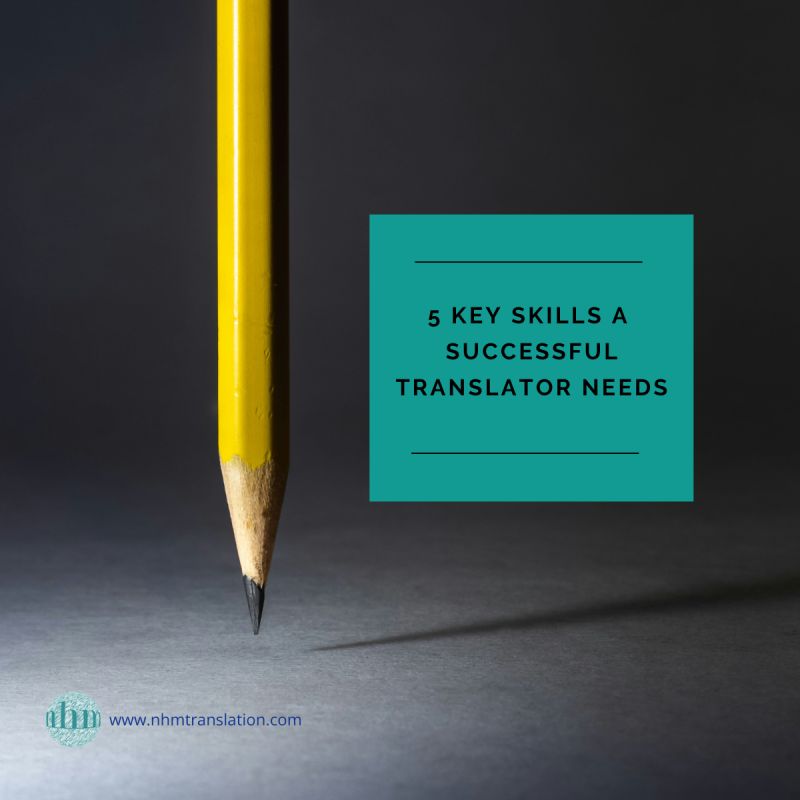What skills do you think a translator should have?
In preparing to give a workshop for recent graduates at the Australian Institute of Interpreters and Translators (AUSIT) national conference in Melbourne on 21-23 November 2024, I’ve been thinking about what are essential skills for translators and interpreters in the current market and how to survive in a post-AI world.
In no particular order, these are my top 5.
❇ 𝐒𝐞𝐥𝐟-𝐦𝐨𝐭𝐢𝐯𝐚𝐭𝐢𝐨𝐧
❇ 𝐓𝐫𝐚𝐧𝐬𝐥𝐚𝐭𝐢𝐨𝐧 𝐨𝐫 𝐢𝐧𝐭𝐞𝐫𝐩𝐫𝐞𝐭𝐢𝐧𝐠 𝐪𝐮𝐚𝐥𝐢𝐟𝐢𝐜𝐚𝐭𝐢𝐨𝐧
❇ 𝐁𝐮𝐬𝐢𝐧𝐞𝐬𝐬 𝐬𝐤𝐢𝐥𝐥𝐬
❇ 𝐒𝐮𝐛𝐣𝐞𝐜𝐭 𝐦𝐚𝐭𝐭𝐞𝐫 & 𝐀𝐈 𝐬𝐤𝐢𝐥𝐥𝐬
❇ 𝐂𝐨𝐦𝐦𝐮𝐧𝐢𝐜𝐚𝐭𝐢𝐨𝐧 𝐬𝐤𝐢𝐥𝐥𝐬
1. Self-Motivation
Working autonomously is at the heart of being a successful translator or interpreter. Whether you’re managing a busy freelance schedule or maintaining consistency in a long-term project, the ability to motivate yourself is key. But self-motivation goes beyond staying productive; it also means taking ownership of your professional development. In a world where technology and client needs evolve rapidly, upskilling is non-negotiable. Staying ahead might mean learning new tools, brushing up on industry trends, or pursuing certifications in specialised areas.
2. Translation or Interpreting Qualifications
A solid foundation in translation theory and linguistics sets professionals apart, especially when explaining the reasoning behind strategies and choices to clients. In the AI-driven market, this depth of knowledge matters more than ever. Tools can assist, but human expertise provides the critical context and creativity that machines lack. A strong theoretical background also helps when adapting to niche fields, ensuring that your decisions are backed by a deep understanding of language and cultural nuances.
3. Business Skills
It’s no longer enough to deliver excellent translations or flawless interpretations; professionals must also manage their businesses effectively. Essential business skills include marketing your services, setting fair and sustainable prices, negotiating contracts, handling administrative tasks, and issuing invoices. Communication is equally important: building relationships with clients and colleagues often determines long-term success.
4. Subject Matter and AI Skills
Specialisation is a powerful tool in today’s market. Whether your expertise is in legal, medical, technical, or creative fields, deep knowledge of your subject matter helps you stand out. In parallel, AI tools are becoming integral to translation and interpreting workflows. Learning to leverage these tools effectively can increase productivity, improve preparation for assignments, and refine your output. However, critical thinking and human judgment remain irreplaceable—AI might suggest a solution, but your contextual understanding ensures it’s the right one.
5. Communication Skills
Ultimately, translation and interpreting are about connection, and communication is central to that. Understanding your client’s needs, articulating your services and value clearly, and collaborating with colleagues are all crucial to your success. Networking, whether at industry events or online forums, helps you stay informed and find opportunities. Effective communication also builds trust—clients are more likely to work with professionals who can explain their approach and deliver solutions confidently.
Adapting to the Future
As we navigate a post-AI world, the key takeaway is this: the human touch remains irreplaceable. Machines can assist, but they cannot replicate creativity, empathy, and nuanced understanding. By honing these five skills, translators and interpreters can stay relevant and resilient in a changing industry.
Which of these skills do you think is the most important for the future of the profession?
Translators need to learn how to use AI tools to increase productivity and output. But, at the end of the day, we need to keep in mind that genAI and neural machine translation tools don’t actually understand texts, but merely produce human-like content. This means that a human will always be needed in the loop, especially for high-stakes content.





 English
English